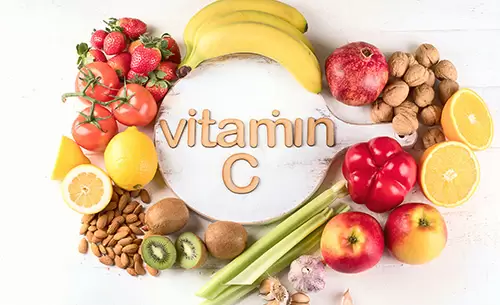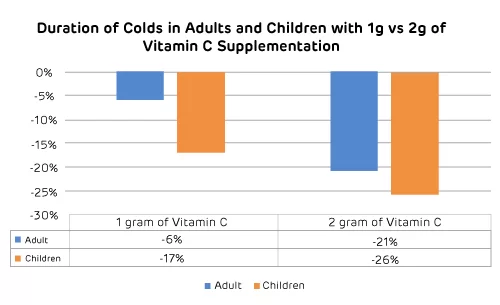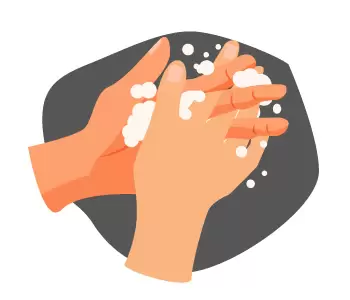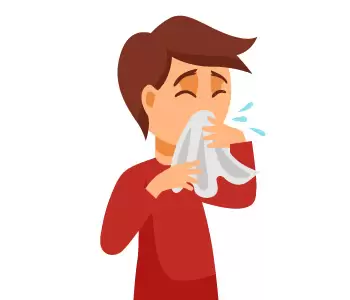
Vitamin C as your immune protector
Feb 5, 2020
Introduction

“Are you selling surgical face mask and hand sanitizer?”
“Sorry, these products are currently out of stock.”
This might be the most popular question you have been asking when you are entering any pharmacy. With the outbreak of coronavirus (2019-nCoV) or known as Wuhan virus, you might be searching the face mask and hand sanitizer to protect yourself and your loved one. The public is getting more worried when the World Health Organization (WHO) declared a global health emergency on 30 January 2020 as the coronavirus outbreak spread well beyond China. There is now confirmed that 24 countries including Malaysia is facing this spread respiratory infection.
Besides looking for external protection, you can enhance your own body immune system with the consumption of vitamin C as it has several activities that could contribute to its immune-modulating effects. Vitamin C has been shown to be 10 times higher in immune cells as compared to plasma. It accumulates in neutrophils (a type of white blood cell) and enhance their migration to the site of infection. Then, it boosts the activation of phagocytes (a type of white blood cell) to engulf the microbes and to release reactive oxygen species (ROS) -to deactivate the virus and kill the bacteria. However, some ROS are harmful to the host cells. With its function as antioxidant, vitamin C protect the host cells from oxidation damage throughout the immune response. Ultimately, Vitamin C also involves in the apoptosis (celldeath) and clearance of the used neutrophils from the sites of infection.
The most extensive studied human infection is common colds. It is not precisely defined as any specific disease, yet it is a group of symptoms such as nasal discharge, sore throat, cough, and fever. Majority of common cold episodes are caused by respiratory virus! Therefore, with the recent breaking news of the novel coronavirus, it is essential for us to take enoughof Vitamin C for a stronger immune protection against the outbreak.
Besides oranges, vitamin C is widely available in nature and found in other fresh fruits such as guava, mango, papaya, citrus fruits and leafy vegetables. If the recommendation of the consumption of at least five fruits and vegetables daily is followed, the amount of vitamin C ingested is estimated to be in the 200–300 mg range depending on the specific vitamin C content of the food consumed.

However, Vitamin C is also the least stable of all vitamins and easily destroyed during processing and storage. In addition, vitamin C is a water-soluble vitamin, which is easily excreted through urination. Hence, it must be replenished daily. Ensuring adequate intake of vitamin C through the diet or via supplementation, especially in groups such as the elderly, smoker, people who are under stress or people with poor immune system, is required for proper immune function and resistance to infections. Thus, higher dosage of vitamin C through supplementation may need to be considered for achieving optimum health functions from it.
According to Figure 1, 1g/day of Vitamin C shortened the duration of colds by 6% and 17% in adults and children respectively. While, 2g/day of Vitamin C shortened the duration of colds in adults by 21% and in children by 26%.

Figure 1: Hemilä, H. (1999). Vitamin C supplementation and common cold symptoms:
factors affecting the magnitude of the benefit. Medical Hypotheses, 52(2), 171–178.
Additionally, you may protect yourself from this Wuhan virus by maintaining the following health practices:

2. Cover your mouth and nose with a tissue or handkerchief when coughing or sneezing

3. Avoid consuming raw or undercooked animal products

4. Wear a face mask in crowded areas

5. Avoid direct contact with those with symptoms (flu, coughing or sneezing)

This information is brought to you by BiO-LiFE (Marketing) Sdn Bhd. For more details, please visit biolife.com.my or contact (03) 7499-7999.

Find out more : http://Biolife.2.vu/MegaCPlus

Find out more : http://Biolife.2.vu/nonc
References
- Carr, A. C., & Maggini, S. (2017). Vitamin C and immune function. Nutrients, 9(11), 1211.
- Padayatty, S. J., Katz, A., Wang, Y., Eck, P., Kwon, O., Lee, J. H., … & Levine, M. (2003). Vitamin C as an antioxidant: evaluation of its role in disease prevention. Journal of the American college of Nutrition, 22(1), 18-35.
- Huijskens, M. J., Walczak, M., Koller, N., Briedé, J. J., Senden‐Gijsbers, B. L., Schnijderberg, M. C., … & Germeraad, W. T. (2014). Technical Advance: Ascorbic acid induces development of double‐positive T cells from human hematopoietic stem cells in the absence of stromal cells. Journal of leukocyte biology, 96(6), 1165-1175.
- Straten, M.V. & Josling P. 2002. Preventing the common cold with a vitamin C supplement: a double-blind, placebo-controlled survey. Advances in Therapy, 19(3):151-159
- Hemilä, H. (2017). Vitamin C and Infections. Nutrients, 9(4): 339
- Carr, A., & Maggini, S. (2017). Vitamin C and Immune Function. Nutrients, 9(11): 1211
- Segal A.W. (2005) How neutrophils kill microbes. Annual Review of Immunology, 23: 197
- Ministry of Health [Internet]. Novel Coronavirus (2019-nCoV)[cited 3 February 2020]. Available from: http://www.moh.gov.my/index.php/
pages/view/2274



